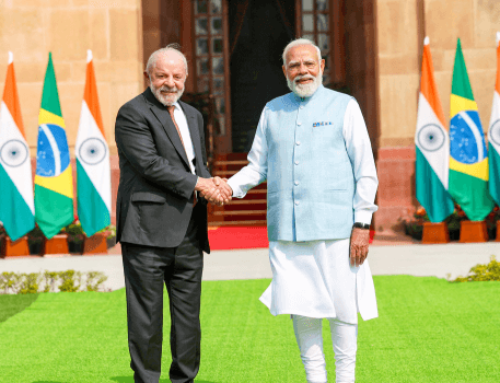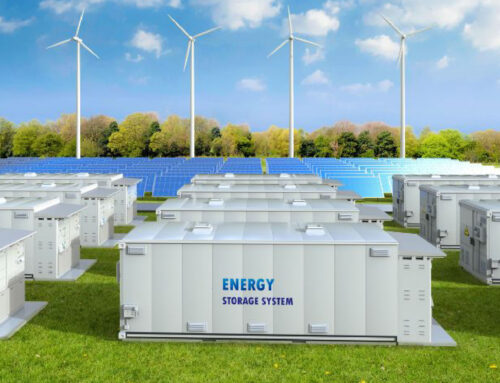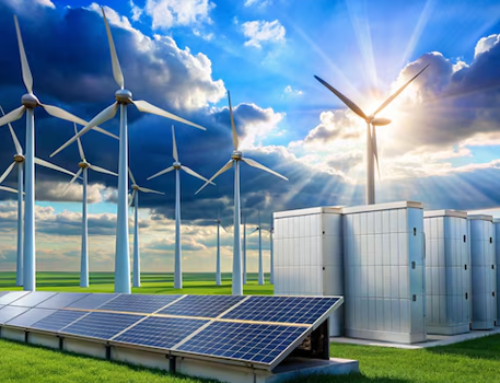
Chinese solar equipment producers have sent force majeure letters to their Indian clients, alleging an inability to provide equipment according to agreed-upon timetables, as a result of the country’s chronic power deficit.
Two sources familiar with the situation verified the application of the force majeure clause, which allows a manufacturer to justify a delay by citing a disruption caused by an unanticipated occurrence, in this case, power outages.
One of the firms that have sent out such notifications is Trina Solar Ltd, one of China’s major solar power equipment producers. A notification provided by an official at a big Indian solar power producer stated, “Trina Solar (Schweiz) AG today serves you a notice of force majeure incident presently occurring in China, which is preventing us from manufacturing at full capacity.”
This is significant since there are around 5 gigawatts of pending supply to Indian developers till March 31, 2022. (GW). As part of its 175 GW renewable energy ambition, India is pushing hard to reach a 100 GW solar installed capacity by 2022.
As part of its economic plan, India has placed a basic customs charge on imported solar cells, modules, and inverters, which will take effect on April 1 next year. In addition, the ministry of new and renewable energy has issued an order imposing a list of authorized solar PV models and module manufacturers for government-supported schemes, such as projects from which distribution firms buy power for distribution to their customers.
“As you might be aware, China has imposed reduction of electricity usage in several provinces including where some of our production sites and component suppliers are located. This will also have an impact on Trina’s factories located outside China,” the force majeure notice said.
Despite having the world’s largest green energy program, India’s domestic production capacity for solar cells and modules is just 3GW and 15GW, respectively. Trina Solar Ltd, Jinko Solar, ET Solar, Chint Solar, and GCL-Poly Energy Holdings Ltd are among the leading solar equipment producers in China.
“The ideal storm has arrived, with shipping lines interrupted, freight costs quadrupling, container shortages, and now these force majeure warnings.” On the condition of anonymity, the CEO of an Indian company remarked, “The situation is awful.”
India’s solar cells and modules imports came down to $571.65 million in the last financial year compared to $2.16 billion and $1.68 billion in 2018-19 and 2019-20 respectively. Of solar cells and module imports worth $571.65 million in 2020-21 by India, China alone accounted for $494.87 million followed by Thailand, which accounted for $18.76 million.
A Trina Solar spokesperson did not comment.
Questions addressed to Jinko Solar, ET Solar, Chint Solar, and GCL-Poly Energy Holdings Ltd spokespersons on Sunday went unanswered till the time of publication.
This comes as 19 companies, including Mukesh Ambani’s Reliance Industries Ltd, Adani Group, and US-based First Solar, have submitted bids to build up solar manufacturing plants under the government’s ambitious 4,500 crore production linked incentive (PLI) program. The project is planned to create 10 GW of integrated solar PV manufacturing capacity and bring in about Rs 17,200 crore indirect investment.
“Unfortunately, at this very moment there is no detailed information available but we deemed it necessary to inform you, as soon as we could, about possible disruptions that will affect the deliveries in the coming months,” the force majeure notice cited above said.
China’s electricity deficit occurs at a time when coal inventories at India’s thermal power plants are dangerously low, as power demand rises and fuel supplies are insufficient to satisfy rising demand. Heavy rains have hampered coal production and dispatch, and a rise in power demand due to the recovery of the economy has depleted coal inventories. Domestic coal use has risen as well since higher-cost imported coal has slowed power from coastal projects and reduced generation from alternative fuel sources.
Click Here for more updates Ornatesolar.com








Dealer ship in Ujjain Madhya Pradesh